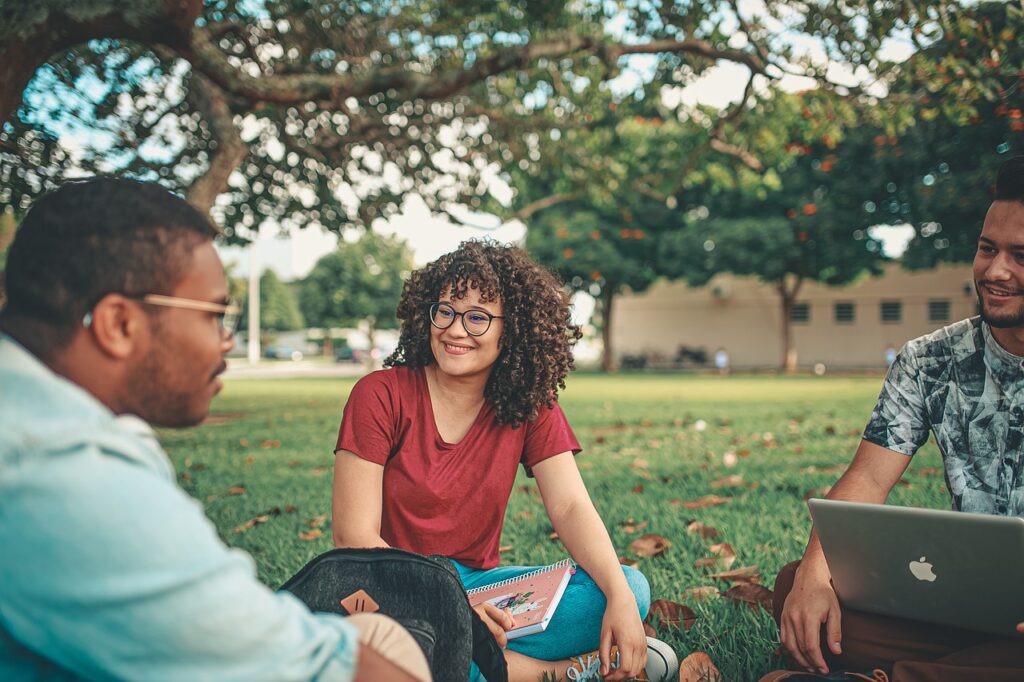Accelerate your Social Wellbeing
Summer is on the way. The long and bright days, bring better opportunities to meet up with people you know and meet new people as well. This month’s blog is about how you can accelerate your well-being with these social gatherings and at the same time, increase biodiversity and reduce your carbon footprint.
Social wellbeing refers to your ability to feel part of a social environment. This can mean getting involved with local organisations and clubs or having regular social interactions with friends and family, or it can mean contributing to the environment.

Loneliness is one of the major sources of mental illness. By making connections that also help you to live sustainably, you can overcome loneliness and ignite positive changes for both you and the planet.
Here are some common signs of social wellness:
- Being assertive without being passive or aggressive.
- Having a healthy balance between your social and personal time.
- Acting naturally and being yourself.
- Engaging with other people in the community.
- Treating others with respect, regardless of background and circumstances.
- Regularly developing new friendships and social networks, whilst maintaining existing ones.
- Managing conflicts.
- Having fun.
Sometimes it can be difficult to pinpoint exactly how you are displaying those signs. The following questions shall help you:
- Are you comfortable asking for help?
- Do you trust the people in your social circles?
- Do those people care about you?
- Can you communicate clearly when dealing with conflict?
- Do you feel motivated when working with organisations?
- Do you enjoy spending time on your own?
If you are answering yes to the majority (or all!) of the above questions, then you have a healthy level of social wellbeing.
If you feel that you need to improve your social wellbeing in certain areas then the following tips shall do just that:
Exercise with friends
If you have friends or family members that enjoy the same physical activities as you, then why not invite them to join in? Maybe a gym class or a game of tennis could help you strengthen your social relationships. Of course, exercise doesn’t have to be overly strenuous. Just going for a short walk with a friend can give you valuable exercise and strengthen your social wellbeing, especially if it is in an environment that builds your connection with nature, and the person you are with.

Have conversations with friends and family
The best way of gaining momentum with climate change actions is to raise awareness with the people around you as much as possible. Therefore, regular conversations on the actions you are considering and the issues that need tackling are the way forward. Be mindful that different people will have different levels of awareness and motivation to make changes, so be respectful and avoid being judgemental if they do not share your passion. Just discussing and listening actively helps to activate curiosity and interest in the topic.
Make new friends
Whilst you might make new friends by joining clubs, there are plenty of other ways you can connect with new people. Try talking to your neighbours or, if you have a dog, your fellow dog walkers. Sometimes friendships can start in seemingly unlikely places. It is also worth remembering that some dating apps have ‘friendship’ options, rather than being purely used for romantic relationships. In particular, focus on friendships and connections that will support your goal to live a greener life.
Join organisations
If you want to work towards helping the environment, then you can join related organisations and attend relevant events. At these events, you can share information and news, as well as look for volunteering opportunities. You can now even build a social network of people who share similar goals and values online. Having this community and a good support system, when you are experiencing frustration or burnout, is an integral part of you prioritising your personal wellbeing. It positively impacts your wellbeing, as well as that of the community and the planet.
Get into a routine
To help ensure you get your regular ‘dose’ of social wellbeing, try to develop a routine. If you join a group, this is easy as it will have set times for meetings and events. But you should also have a routine for other social activities. For example, have a walk on Sunday, meet a friend on a Wednesday evening or play sports on another day of the week. Doing this will make you far more likely to complete the activities toward an eco-friendly life.
Summary
Over time, our social connections change – some naturally fade away, whilst other new ones emerge. It is important that you process these changes and ensure you have a constant, healthy level of social contact by engaging in environmentally relevant groups and connecting with like-minded friends and family regularly.
Hansa Pankhania is an Author of Self-help books for adults and children available on Amazon and through her website.
She is a Speaker and Founder of AUM WELLBEING CONSULTANCY which offers personal and corporate wellbeing solutions.
In her books, STRESS TO SUCCESS IN 28 DAYS and STRESS TO SUCCESS STORIES, she is passionate about sharing natural wellbeing techniques which are cost free, easy-to-implement but nourish your body, mind, and soul in powerful ways.
Her CHAKRAJI CHILDRENS RELAXATION SERIES OF BOOKS passes natural wellbeing tips to primary age children using colourful illustrations.
She has also published her memoir BEST OF THREE WORLDS about being born in Kenya as a British subject of Indian origin and the fusion of three histories and cultures. She is currently writing a sequel, BEST OF ONE WORLD – my 50 Steps to a Sustainable, Meaningful and Joyful Life, which will be published in October 2023.
Text- +449(0)7888747438
Contact us at +44(0)7888747438

